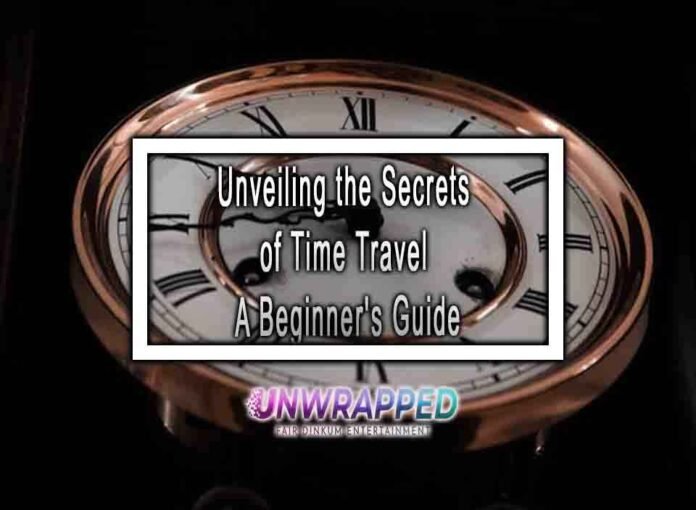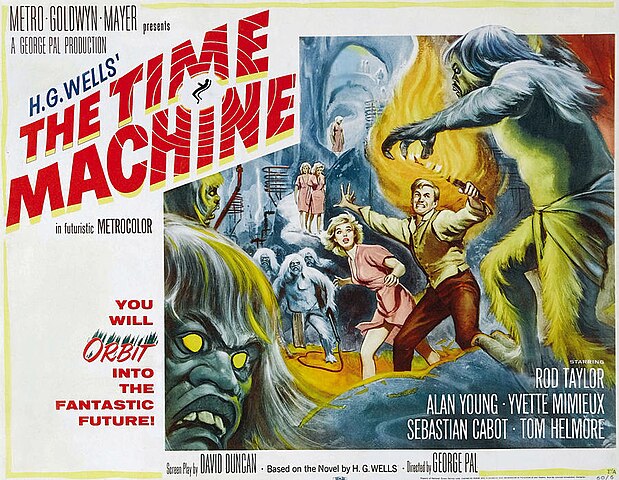Time travel is a captivating concept that has intrigued scientists, writers, and enthusiasts for generations. While it remains a topic of scientific exploration and a popular theme in science fiction, it’s important to clarify that as of my last knowledge update in January 2022, time travel remains theoretical and speculative. Here’s a beginner’s guide to understanding the concept of time travel:
1. Theoretical Frameworks:
- Time travel is primarily explored within the realm of theoretical physics, particularly in the context of Einstein’s theory of relativity. There are two main theoretical frameworks for time travel:
- Time Dilation: According to Einstein’s theory, time is relative, and it can pass at different rates for objects in motion or under the influence of gravity. This phenomenon is known as time dilation and has been experimentally verified.

- Wormholes: Theoretical physicists have proposed the existence of wormholes—hypothetical tunnels through spacetime that could connect distant points in the universe. Wormholes are often considered as potential shortcuts for time travel.
2. The Grandfather Paradox:
- The “grandfather paradox” is a common dilemma associated with time travel. It raises the question of what would happen if you were to travel back in time and make changes that could alter your own past, such as preventing your grandparents from meeting.
3. Novikov Self-Consistency Principle:
- The Novikov self-consistency principle is a proposed solution to the grandfather paradox. It suggests that the laws of physics would prevent any action in the past that could create inconsistencies or paradoxes.
4. Time Travel in Fiction:
- Time travel is a popular theme in science fiction literature, films, and television shows. Iconic works like H.G. Wells’ “The Time Machine” and the “Back to the Future” film series have explored the concept in imaginative ways.
5. Temporal Mechanics and Paradoxes:
- Fiction often presents various theories and mechanisms for time travel, including the use of machines, devices, and phenomena that allow characters to move through time. Different stories introduce their own interpretations of temporal paradoxes and consequences.
6. Wormholes and Black Holes:
- Wormholes and black holes are frequently depicted as potential portals for time travel in fiction. While these concepts are rooted in real physics, the practicality of using them for time travel remains speculative.
7. Time Travel Philosophies:
- The concept of time travel raises philosophical questions about determinism, free will, and the nature of time itself. It invites discussions about the possibilities and limitations of altering the past and the consequences of time manipulation.
8. Pop Culture and Time Travel Tropes:
- Time travel is a versatile trope in pop culture, allowing for storytelling that explores historical settings, alternate timelines, and the effects of time manipulation on individuals and societies.
9. Real-World Time Travel:
- As of my last knowledge update, time travel as it is commonly depicted in fiction, such as traveling to the past or future, remains speculative and unsupported by current scientific understanding.
10. Time Travel as a Thought Experiment:
– While practical time travel is uncertain, it continues to serve as a thought experiment that stretches our understanding of physics, causality, and the nature of the universe.
Time travel remains an exciting concept that ignites our imagination and challenges our understanding of the universe. Whether explored in theoretical physics, science fiction, or philosophical discussions, the topic of time travel encourages us to contemplate the mysteries of time, space, and the potential for journeys beyond our current reality. It will be intriguing to see how our understanding of time travel evolves with future scientific discoveries and innovations.












